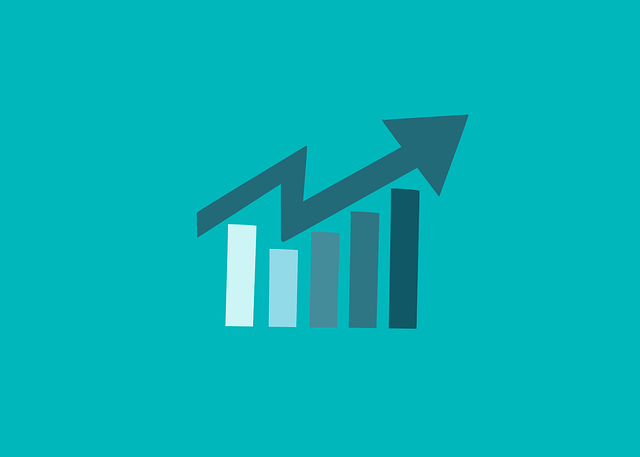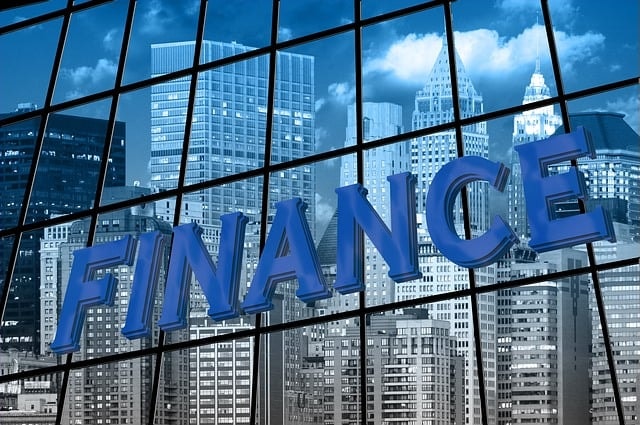What are SBA Loans?
SBA loans are government-backed small business financing packages that offer some of the best benefits available on the market. The US Small Business Administration (SBA) governs the program and sets rules and regulations for participating lenders. SBA loans consist of various financing options.
The SBA does not underwrite or fund the loan. Instead, small business owners apply to one of three SBA-approved lending institutions: commercial banks, credit unions, or alternative business financing facilitators (like United Capital Source).
While it doesn’t fund the loans, the SBA partially guarantees loans (up to 85%). The government guarantee provides extra security for the lender. Since they take less risk, lenders can offer higher borrowing amounts at lower interest rates and longer terms than other small business loan options.
The SBA takes further actions to reduce financing costs by capping the maximum interest rates and limiting the fees lenders can charge. Lenders must apply for SBA approval and are subject to SBA oversight.
SBA Loans Include:
-
SBA 7(a) loans (the most common)
-
SBA CDC/504 loans
SBA 7(a) loans have a maximum loan amount of about $5,000,000. SBA 504 loans can go up to $5.5 million for specific projects. Small businesses can use SBA loan funds for working capital, equipment purchases, commercial real estate, refinancing existing business debt, and more.
What are the minimum Credit Score Requirements for an SBA Loan?
In most cases, you’ll work with an SBA-approved lender to apply for an SBA loan. For 504 loans, you’ll work with a Certified Development Company and a lender. You’ll work with an intermediary lender for microloans, which could also be a CDC or any of the SBA’s other community partners.
Therefore, it’s essential to understand the distinction between SBA requirements and those of SBA lenders. The federal government agency itself does not set a minimum score requirement. However, it instructs approved lenders to perform due diligence when approving loans, usually determined by its standard underwriting requirements.
Many lenders have high credit score requirements for non-SBA loans and apply the same rigor to SBA applications. Since the loans are government-backed, some lenders may lower the threshold slightly. For example, a bank that requires 700 for a term loan might consider reducing the requirement to 675 for an SBA loan. Another lender might maintain the exact requirements, while others may require a higher credit score.
So, while credit score requirements fluctuate between different lenders, you will usually need a score between 650 and 700. However, since the SBA does not set a minimum credit score, it’s theoretically possible to find a lender that accepts scores below 650.
For SBA CDC/504 loans, most lenders typically require a minimum credit score of 680 or higher. SBA Express loans usually require a minimum credit score of 640. SBA CAPLines generally require a minimum credit score of 660.
FICO® Small Business Scoring Service™ (SBSS) Requirements
While the SBA does not set a minimum personal credit score, it does have a business credit score requirement for 7(a) loans. The FICO® Small Business Scoring Service™ (SBSS) aggregates the personal and business credit scores of up to five business owners (each at least 20%), the business credit score of the company, and financial data provided on forms 1919 and 1920. The minimum SBSS score required by the SBA is 155 out of 300.
SBSS scores range from 0 to 300. The SBA minimum SBSS scores for the 7(a) loans are:
-
SBA 7(a) Loans: 155
-
Community Advantage: 140
-
Express Bridge Loan Pilot Program: 130
The SBA 7(a) loan program includes SBA Small Loans, SBA International Trade Loans, and SBA Express Loans. Additionally, SBA lenders may have a higher SBSS requirement. The average SBSS requirement for lenders is 160, with some as high as 180.
What are the other requirements for an SBA Loan?
Your credit score is a crucial component in qualifying for an SBA loan, but there are several other vital factors to consider. It’s critical to understand all requirements before filling out SBA loan applications. Requirements vary based on the lender and loan type.
SBA Basic Eligibility Requirements
To be eligible, a business must:
-
Be a for-profit business
-
Operate and be physically located in the US or its territories
-
Meet the small business size standards as defined by the SBA
-
Have the cash flow to handle loan repayments
-
Not be eligible for or receive loan funds elsewhere
SBA Restricted Industries
The SBA excludes businesses in specific industries. Those include:
-
Real estate investment firms
-
Companies engaged in speculation
-
Gambling businesses such as casinos
-
Rare coin and stamp dealers
-
Multilevel marketing (MLM) businesses, also known as pyramid schemes
-
Religious businesses, charities, and other nonprofits
-
Lending institutions
Time In Business
Most SBA lenders require at least two years of business experience. SBA microloans are intended explicitly for startups and newer businesses.
Annual Revenue
The annual revenue requirements also fluctuate between lenders. Approved businesses we work with here at UCS typically meet the following minimum requirements:
-
Credit score: 650+
-
Time in Business: 2 years
-
Annual Revenue: $350k+
Cash Flow
In its guidelines, the SBA states:
“The cash flow of the Applicant is the primary source of repayment, not any expected recovery from the liquidation of collateral… Suppose the Lender’s financial analysis demonstrates that the Applicant lacks reasonable assurance of repayment on time from the cash flow of the business. In that case, the loan request must be declined, regardless of the collateral available or outside sources of repayment.”
Simply put, you must have the cash flow to support the loan payments.
How to apply for an SBA Loan:
United Capital Source can assist you in applying to an SBA-approved lender by following these steps.
Step 1: Ensure You Qualify
You’ll need a credit score between 650 and 700, as well as a healthy and consistent cash flow. How you intend to use the money also plays a significant role. You’ll need a detailed plan of how the funds will help you invest in and grow the business.
Step 2: Gather Your Documents
Be prepared to provide:
-
Driver’s License
-
Voided Business Check (for business bank account information)
-
Bank Statements
-
Credit Report/Statement of Personal Credit History
-
Credit Card Processing Statements
-
Personal Tax Returns – 3 Years
-
Business Tax Returns – 3 Years
-
Business Plan (Not in all cases)
-
Personal Financial Statement
-
List of Real Estate Owned or Business Leases, if applicable.
-
Debt Schedule/Loan/Rent/Lease Documentation
-
Deeds/Title/Ownership documentation for any collateral/Security
-
Current Profit & Loss Statements and Balance Sheet Year-to-Date
-
A/R and A/P Reports
-
United Capital Source 1 Page Application
Step 3: Fill Out the Application
You can begin the application process by calling us or filling out our one-page online application. Either way, you’ll be asked to enter the information from the previous section along with your desired funding amount.
Step 4: Speak to a Representative
Once you apply, a representative will contact you to explain the repayment structure, rates, and terms of your available options. This way, you won’t have to worry about any surprises or hidden fees during repayment.
Step 5: Receive Approval
SBA Loans through our network generally take 3-5 weeks to process. Once your file is approved and closed (45-60 days), the funds should appear in your bank account within a few business days.
What are the pros & cons of an SBA Loan?
Pros:
-
The US Small Business Administration partially guarantees the loans.
-
Available borrowing amounts range from $0 to $5 million.
-
Low interest rates and favorable repayment terms.
-
A loan package is available for virtually any business need.
-
You can use them to build business credit.
-
It’s possible to combine an SBA loan with other small business loans.
Cons:
-
Inconsistent SBA loan credit requirements between lenders.
-
Usually requires an excellent credit score & strong business financials.
-
Requires extensive documentation as part of the application process.
-
It could take up to 120 days to close and fund an SBA loan.
-
Most loans require a down payment & personal guarantee.
-
You may have to offer up collateral to secure an SBA loan.
Frequently Asked Questions
Here are the most common questions about credit score requirements for SBA loans.
Does the SBA set a minimum Credit Score?
No, the SBA does not set a minimum credit score. However, most SBA lenders require small businesses to have a credit score between 650 and 700 to be eligible for qualification.
Do all SBA Lenders have the same Credit Score requirement?
No, SBA lenders each set different credit score requirements. It’s one of the more frustrating aspects for small business owners. Some potential borrowers apply to multiple lenders before getting accepted.
One factor that adds to the frustration is that not every SBA lender publishes its credit score requirement. So, you won’t know if you’re eligible until you apply. Look for SBA lenders that publish set minimums if you want to assess your eligibility before applying.
What can I do to improve my Credit Score for an SBA Loan?
Improving your credit score can help secure business financing at lower rates. The following actions can help boost your score.
Timely Payments
Making on-time payments for your utilities or debt payments is one of the best ways to improve your credit score. Consider setting up automatic payments to ensure you never miss a due date.
Lower Your Debt
Outstanding debt impacts both your credit utilization and debt-to-income ratio (DTI). Credit utilization is the percentage of available credit that you currently use. You should aim for a credit utilization of 30% or less.
DTI is the percentage of your income spent on debt payments, such as loans, credit cards, or rent. An ideal DTI is 28% or lower, and you’ll usually need a DTI of less than 37% to improve your credit score over time.
Dispute Credit Report Errors
If you notice any errors on your credit report, such as a late payment that wasn’t late or an unknown lien, challenge the error with the credit bureau. Most credit bureaus resolve disputes within 30 days, and your credit score might increase after that.
SBA Loan Credit Score – Final Thoughts
Although we would like to provide a definitive credit score requirement for SBA loans, it varies depending on the specific loan program and lender. Generally, you will need good to excellent credit to qualify.
Additionally, the higher your credit score, the better your approval odds. You’ll also get more favorable interest rates and loan terms with a high credit score. While it’s not always easy, do what you can to boost your credit score before applying for an SBA loan.
Contact us if you want to learn more about SBA loan requirements or if you’re ready to apply.














